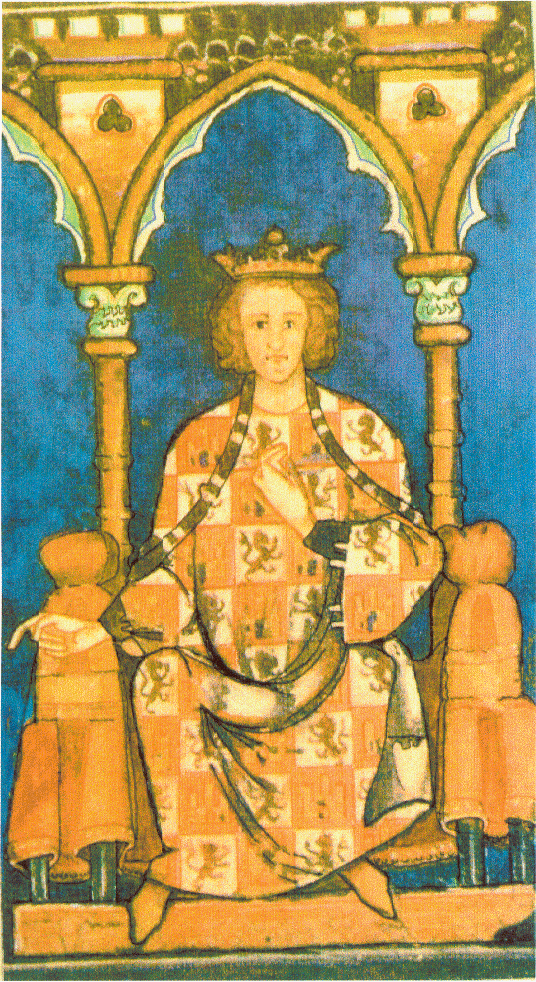

 King of Castile and León (from 1252) and brother-in-law of Edward I of England. A patron of Castilian literature and historiography, and of the arts, he initiated the study of music at Salamanca University. Many troubadours found favor at his court, and it was here that the MS known as the Cantigas de Santa Marķa comprisong over 400 songs was compiled; Alfonso himself may have composed some of its melodies. It has been called "one of the greatest monuments of mediaeval music."
King of Castile and León (from 1252) and brother-in-law of Edward I of England. A patron of Castilian literature and historiography, and of the arts, he initiated the study of music at Salamanca University. Many troubadours found favor at his court, and it was here that the MS known as the Cantigas de Santa Marķa comprisong over 400 songs was compiled; Alfonso himself may have composed some of its melodies. It has been called "one of the greatest monuments of mediaeval music."
Alfonso, though in many ways an unsatisfactory monarch, founded Spanish historiography in the vernacular and is sometimes called the father of Castilian prose. He was fond of music, the patron of many troubadours, and established a course in music at the university of Salamanca. Guiraut Riquier, the last of the troubadours, is known to have spent some time at Alfonso's court. He was, however, by no means the first Provençal poet-musician to have been active in Spain: The Monk of Montaudan and Guiraut de Bornelh are among the troubadours who had been active there in earlier times. The rulers of Provence and the Iberian kingdoms frequently exchanged visits, and troubadours and jongleurs belonging to their entourages undoubtedly assisted in what might be called the cross-fertilization of the indigenous verse and music; it is hardly surprising that we find a style similar to that of the troubadours in the Cantigas de Santa Maria.